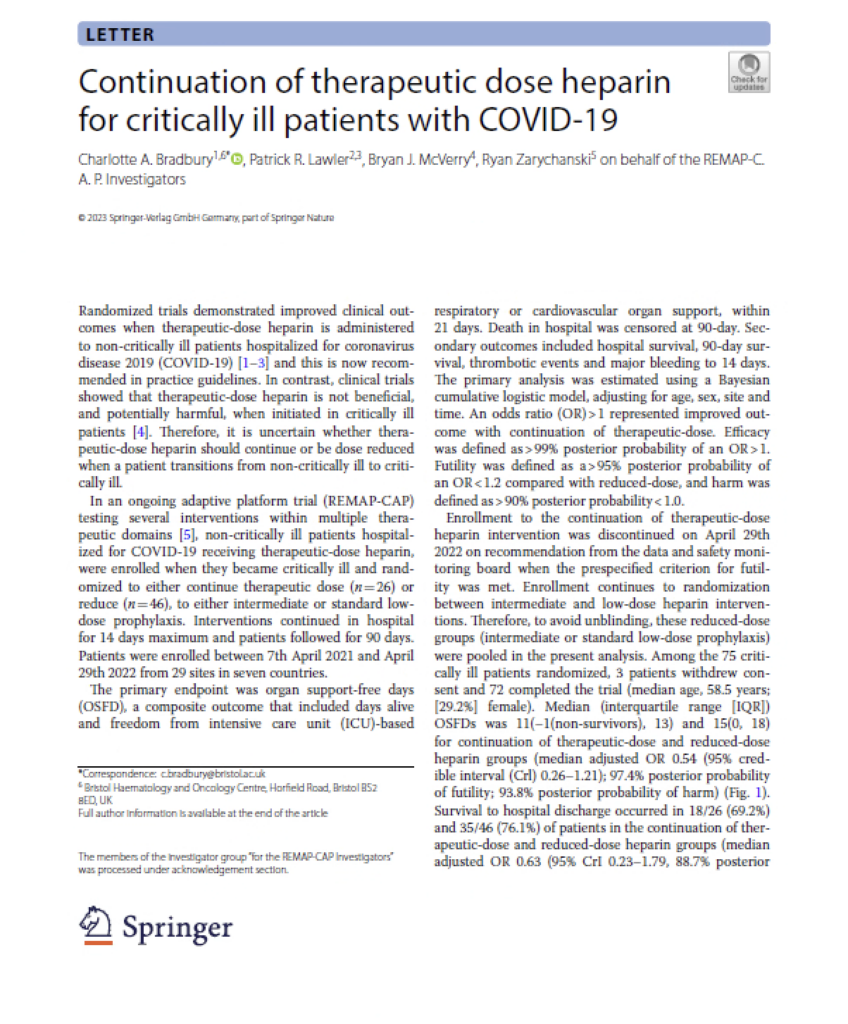Letter summary
COVID-19 infection promotes clots that block blood flow in small and large vessels which contributes to organ dysfunction, respiratory failure and death. In collaboration with ATTACC and ACTIV-4, REMAP-CAP has previously demonstrated that therapeutic dose heparin (a blood thinner) improves outcomes in hospitalised patients with COVID-19 if initiated when they are not critically ill. In contrast, if initiated when critically ill (in intensive care), it did not improve outcomes and may be harmful. However, there has been ongoing uncertainty what to do if a patient becomes critically ill who has already been started on therapeutic dose heparin when non-critically ill, and whether the heparin dose should change.
The recent data from REMAP-CAP published in the intensive care medicine journal demonstrated that if a patient transitions from non-critically ill to critically ill, reducing heparin dose was likely better than continuing therapeutic dose.







